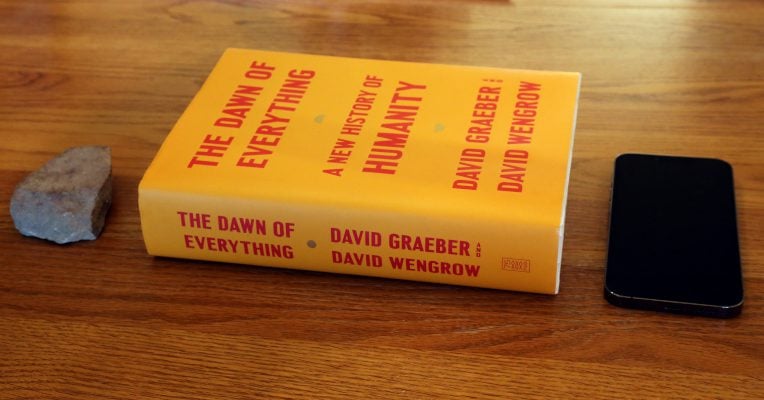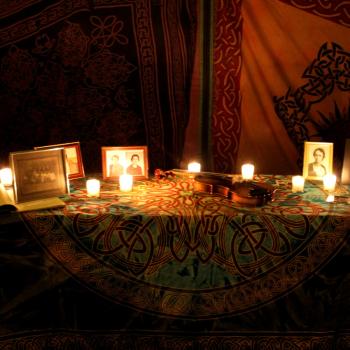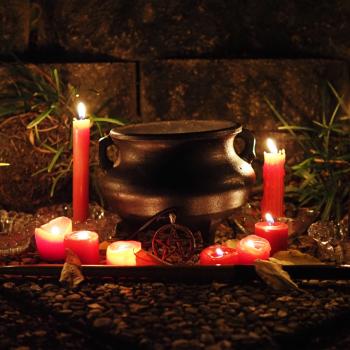The Dawn of Everything: A New History of Humanity
by David Graeber and David Wengrow
Farrar, Straus and Giroux – November 2021
704 pages
Hardback: $35.00, Kindle: $16.99
A book with the title The Dawn of Everything is nothing if not ambitious. One with 526 pages of text, 84 pages of end notes, and 63 pages of bibliography is nothing if not exhaustive. And when it begins with the question “why does inequality exist?” you know you’re not dealing with your typical history book.
“The Dawn of Everything” is perhaps an overly broad title. Graeber and Wengrow quickly acknowledge the impossibility of answering the question of why inequality exists (because the definition of “equality” is largely dependent on cultural context) and move to examining questions of hierarchy, governmental systems, food supplies, and ultimately, freedom.
The book presents clear evidence that the way things are today – a hierarchical blend of oligarchy and representative democracy – was not inevitable and is not the only way things could have turned out.
Before you can create a new way of living, someone must first imagine it. This has happened over and over again throughout the history and prehistory of humanity. The Dawn of Everything does not imagine a new way of living. Rather, it provides ample evidence that different ways of living are possible, because humans have lived and governed ourselves in many different ways in the past. In doing so, it frees our imaginations to begin looking for new ways to solve societal problems.
That alone is worth the price of the book.
History is written by the winners – and by people who think like the winners
The most popular negative review on Amazon calls The Dawn of Everything “woke revisionism.” I suspect this person hasn’t actually read the book. Or if they have, they’re so wedded to what they’ve always assumed are “the way things are supposed to be” that they’re incapable of examining evidence to the contrary.
We’ve always been taught (or at least, I was) that humanity progressed from “primitive” hunter-gatherers who were mostly egalitarian to tribal societies organized around chiefs and elders. Then people developed agriculture, which led to settled societies. The surpluses agriculture created allowed for some to have more than others, which led to private property, which led to governments to manage those surpluses and to keep people in line, which in turn led to organized religions, priests, kings, and the beginning of “proper” civilization.
The Dawn of Everything shows that’s not the way things happened. Rather, our history (and especially our prehistory) has been written by the descendants of the Roman Empire who focused their attention on those parts of history that fit their preferred narrative.
What they’ve left out is critical.
Humans have been more or less the same for 200,000 years
Whether you’re talking about an early example of homo sapiens sapiens hunting on the plains of Africa, a pre-Columbian Native American, or a 21st century Englishman, you’re talking about the same creatures. Our bodies have changed slightly but not significantly. We’re them and they’re us.
So when we think of people in other human societies as “primitive” or “childlike” or “naïve” we’re making a mistake – one born primarily from a desire to justify colonial exploitation. We can’t see what’s there because we can’t imagine that it could be there. It’s like those who insist the pyramids must have been built by space aliens, because the ancient Egyptians couldn’t possibly have built something so advanced. And yet they did.
And so did many other societies.

Humans have lived in many socio-political arrangements over the millennia
There was no Garden of Eden – not literally and not metaphorically either.
Yes, there were the stereotypical nomadic hunter-gatherers. But people started living in settled places not long after the end of the last ice age. If you have a place where there’s plenty of fresh water, plenty of game animals, and plenty of edible plants, why wouldn’t people settle there?
And once they started settling, they used many different ways to organize themselves. Some had kings with the power of life and death. Some used a consensus method to make decisions. And some – the evidence strongly suggests – had no government at all.
This is perhaps the most interesting part of The Dawn of Everything: all the accounts of all the societies around the world and all their different ways of living. Size doesn’t seem to matter – larger societies don’t automatically require more coercive coordination.
Hierarchy was not inevitable. But somewhere along the way, we stepped into hierarchy, and we got stuck.
What does it mean to be free?
Having decided that the question of inequality is impossible to answer, Graeber and Wengrow instead tackle the question of freedom. In particular, what did “freedom” mean to people living in prehistoric times?
They identify three “primordial freedoms” – the freedom to move, the freedom to disobey orders, and the freedom to create or transform social relationships. Many of the early chiefs and kings were leaders with little real power to compel others. While people might follow them in times of war, in times of peace they would simply ignore commands they didn’t like. Many of the “primitive” restrictions on leaders were intended to keep any one person or family from gaining too much power over others.
So, what happened? A lot, to be fair. But in an almost-throwaway comment, Graeber and Wengrow blame it on bureaucracy: “when promises become impersonal, transferable … one of the most fundamental building blocks of social life corrupted by a confluence of maths and violence.”
Or, as novelist Terry Pratchett said, “sin is when you treat people like things.”
“Western” ideas about freedom and democracy owe much to Native American philosophers
We usually think of freedom as a product of the European enlightenment – certainly that’s where contemporary conservatives tell us it comes from. But our ideas about freedom would be out of place in early modern Europe, where aristocracy and the divine right of kings were still in full swing.
When the French began to colonize what is now Canada in the late 1600s, they sent Jesuits to convert the natives to Christianity. Their success was mixed, but the records they kept provide an important look into the thinking of the people they encountered.
The Dawn of Everything quotes from the records of conversations between a French military officer named Louis-Armand Lahontan and a Wendat diplomat named Kandiaronk, who provided a stark critique of European society. Here are a few quotes.
What kind of human, what species of creature, must Europeans be, that they have to be forced to do good, and only refrain from evil because of fear of punishment?
I have spent six years reflecting on the state of European society and I still can’t think of a single way they act that’s not inhuman, and I genuinely think this can only be the case, as long as you stick to your distinctions of “mine” and “thine”. I affirm that what you call money is the devil of devils, the tyrant of the French, the source of all evils.
Over and over I have set forth the qualities that we Wendat believe ought to define humanity – wisdom, reason, equity – and demonstrated that the existence of separate material interests knocks all of these on the head. A man motivated by interest cannot be a man of reason.
Graeber and Wengrow examine the charges that these records were exaggerated to create a “noble savage.” And then they provide examples of similar discourse from Western society, showing that while the Native critique is imperfect, it is entirely reasonable and likely to be historically accurate.
Or, what happens when you organize a society around the happiness of its members and not around material gain?
The weaknesses of The Dawn of Everything
This book is not perfect. It devotes virtually nothing to the actual dawn of humanity, then bounces around the past 10,000 years or so in an anecdotal way. It devotes its longest chapter to “why the state has no origin” without directly proposing an answer. It makes a strong case that the way things are was not inevitable, but spends very little time on why they are way they are – besides blaming it on Roman Law and its concept of freedom as “the power of the individual (by implication, a male head of household) to dispose of his property as he sees fit” – and his property included his wife, his children, and his slaves.
It touches only briefly on the difference between “formal” freedoms (what is legal – what it is theoretically possible for someone to do) and “substantive” freedoms (what someone can actually do).
Finally, as with so much academic work, it does a very good job of presenting the facts and defining the problem, but a poor job of proposing a solution. I suppose that’s not the job of historians… though Graeber (who died in 2020 shortly after this book was completed) was an anthropologist and Wengrow is an archaeologist.
But these are minor complaints. The stories this book tells and the truth it reveals are insightful.
As textbooks sometimes say, the implementation of those insights is left as an exercise for the reader.
How can we be more free?
It is impossible to read The Dawn of Everything without wondering “are we free?” “Am I free?”
Our overflowing prisons and militarized borders scream that we are not.
My substantive freedoms – what I can actually do – are greater than they were ten years ago, to say nothing of what they were forty years ago. I have more money now than I did then, and in this society, money buys freedom.
Must it be that way? Should it be that way?
Are we too far down the road of money – what Kandiaronk called the devil of devils – to go back? I suspect we are, though I may be guilty of the very lack of imagination The Dawn of Everything attempts to correct.
Here’s what I learned in reading this book: throughout our existence, humans have lived in many different socio-political arrangements. None were inevitable. All were the products of their environment and of their choices – some conscious, many not.
None were permanent. If the conditions they produced were unsatisfactory for enough people, they would change them and try something else.
And we still can.



















